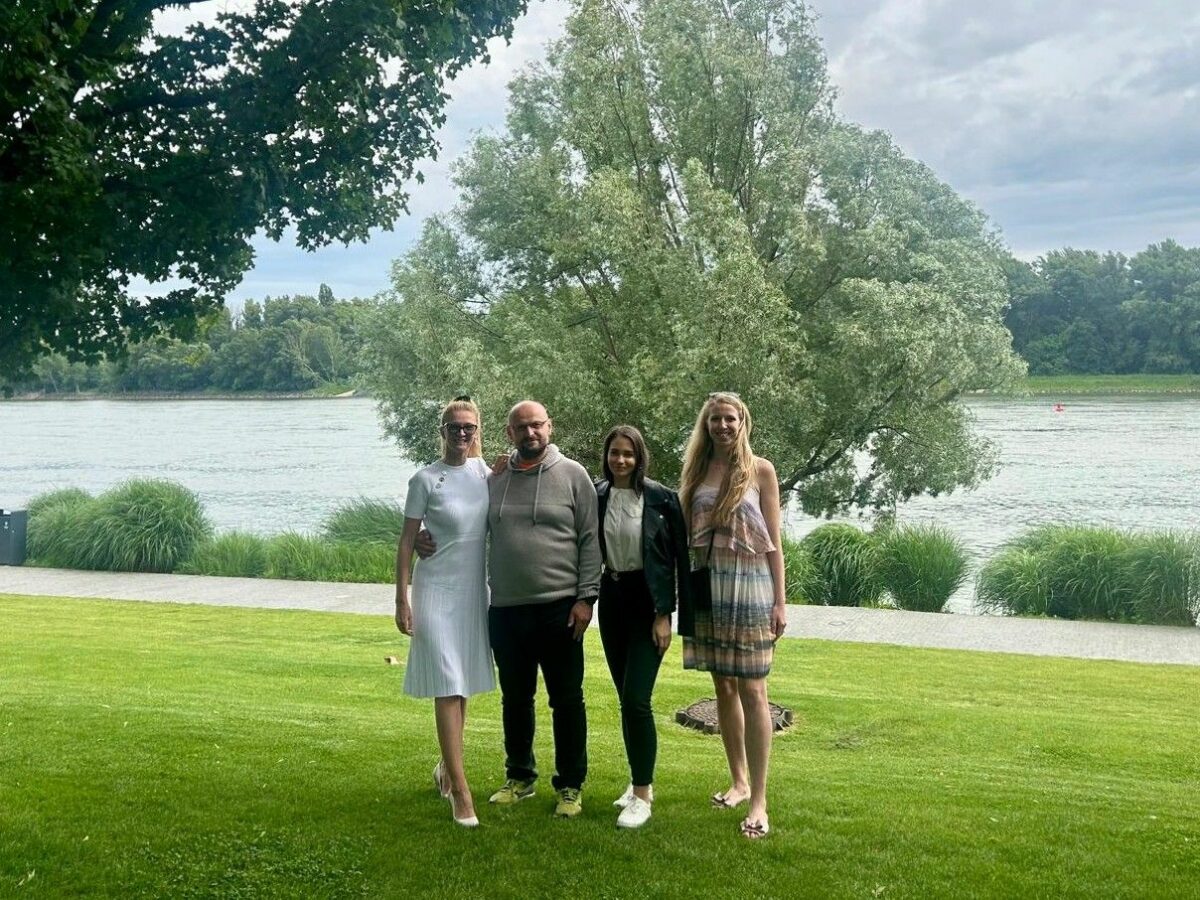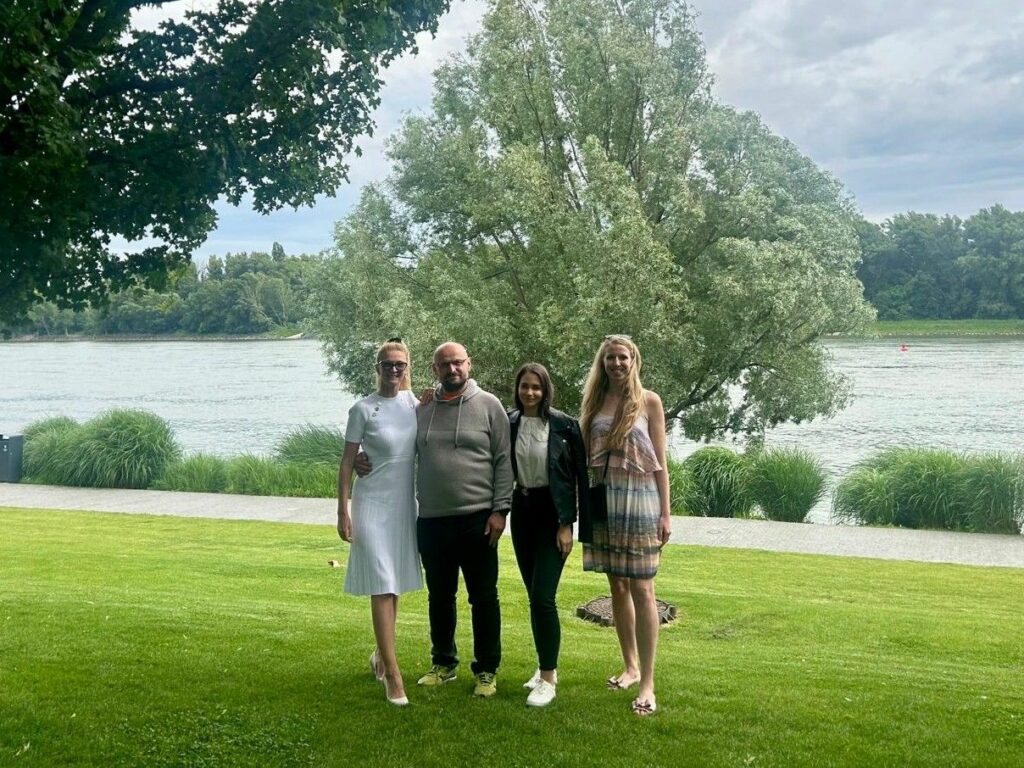Bilateral Meeting of National Competence Centres for HPC from the Czech Republic and Slovakia: Strengthening Cross-Border Cooperation
On May 28, 2025, a working meeting of representatives of the National Competence Centres for High-Performance Computing (NCC) from Slovakia and the Czech Republic took place in Bratislava. The aim was to deepen cooperation within the EuroCC 2 project (Grant Agreement 101101903) and to coordinate further joint activities in the field of high-performance computing (HPC) in the Central European region.
Lucia Malíčková and Halyna Hyryavets participated in the meeting on behalf of Slovakia. The Czech Republic was represented by Tomáš Karásek and Kateřina Beranová from EuroCC Czech Republic, representing IT4Innovations – the National Supercomputing Center of the Czech Republic.
During the intensive discussions, the partners focused primarily on current challenges and opportunities in the field of international cooperation, with particular attention given to:
- the exchange of best practices in reaching target audiences,
- the organization of joint training sessions and activities for small and medium-sized enterprises (SMEs),
- the sharing of successful case studies (“success stories”) and the preparation of their coordinated presentation,
- the planning of joint cross-border events.
The meeting also contributed to the alignment of communication and dissemination strategies of both centres, with the aim of enhancing the effectiveness of outreach regarding the benefits of high-performance computing among both expert and general audiences. The participants appreciated the opportunity for an in-person meeting, which helped strengthen inter-institutional ties and opened up new areas of potential collaboration.
EuroCC Slovakia and EuroCC Czech Republic expressed their commitment to continuing joint initiatives aimed at systematically developing competencies in the field of HPC and strengthening regional synergy between national centres within the European HPC ecosystem.


